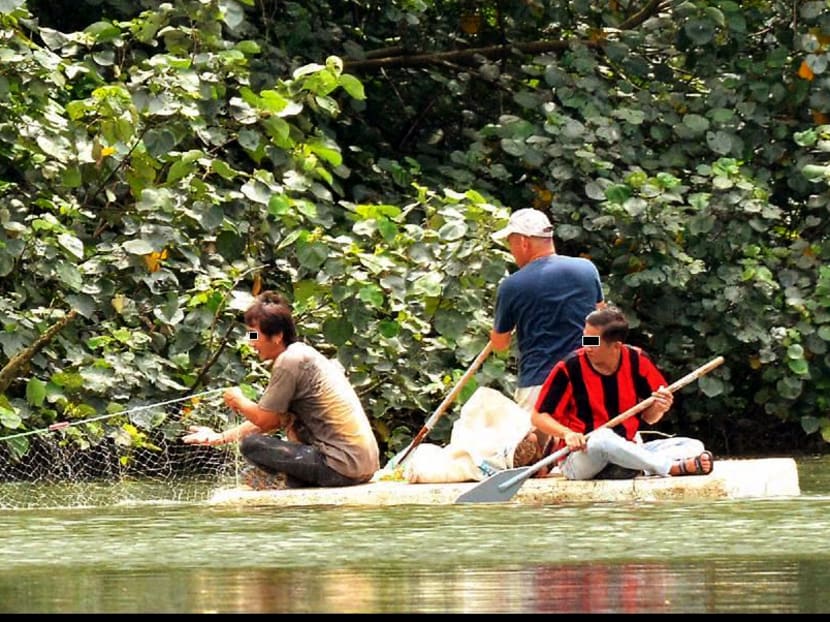Illegal fishing cases on the rise in Singapore’s parks, reserves
SINGAPORE — Cases of illegal fishing in Singapore’s parks and reserves appear to be on the rise, with the number of notices issued by the National Parks Board (NParks) for such cases tripling from 96 in 2012 to 271 last year.

A group of individuals allegedly fishing illegally at the Sungei Buloh Wetland Reserve. PHOTO: NATURE TREKKER
SINGAPORE — Cases of illegal fishing in Singapore’s parks and reserves appear to be on the rise, with the number of notices issued by the National Parks Board (NParks) for such cases tripling from 96 in 2012 to 271 last year.
Such offences make up the bulk of the poaching cases here. There were only two instances of poaching not involving fish last year and 10 in 2012.
The agency, which oversees four nature reserves and more than 300 parks, attributed the increase in the number of illegal fishing and poaching cases to increased enforcement.
The figures were provided in response to media queries over the latest case of alleged illegal fishing at the Sungei Buloh Wetland Reserve last Sunday.
Mr Ben Lee, founder of nature group Nature Trekker, said he saw a group of individuals on a raft in the reservoir, pulling in a large net to check for fish. He immediately alerted the park authorities.
Sungei Buloh Wetland Reserve deputy director Sharon Chan said officers were deployed to the reserve and the individuals involved were questioned at the scene with the help of the police.
“The net used was also confiscated. As investigations are currently ongoing, we are unable to provide further information on the incident. We would like to remind members of the public that fishing is not permitted in Sungei Buloh Wetland Reserve. Signs are prominently displayed to inform the public of this,” she said.
She added that the instances of illegal fishing at the reserve are few and far between due to the preventive measures put in place there.
“When our officers on patrol spot people outside the reserve boundary attempting to enter the reserve to set up nets, we work together with the police to advise them not to continue with their activities,” she said.
There were two cases of illegal fishing last year at Sungei Buloh Wetland Reserve, none in 2013 and one in 2012. The agency did not reveal the locations of other cases.
Ms Chan said the nature reserves cover 4,000ha and illegal poaching is one of the problems faced in managing them. NParks conducts regular enforcement patrols with the help of a group of volunteers called Nature Wardens.
The volunteers play an advisory role and are trained on how to approach and interact with those who conduct illegal activities.
Those who are caught are issued notices of offences. After investigations, a person may be warned or fined. Under the Parks and Trees Act, a person found guilty of removing an animal or plant from a national park or nature reserve without permission can be fined up to S$50,000 or jailed for up to six months, or both.
Mr Lee feels the authorities should act more quickly to nab poachers when a case is reported.
Illegal fishing is rampant in Singapore’s reservoirs and nature reserves, he said, although most of the cases he observed involved hook-and-line fishing. This method, while “wrong”, causes less damage to the environment, compared with the method of using nets.
“This (poacher at Sungei Buloh) throws a net and once he hauls it in, so many fish will be stuck there. He’s taking so many fish lives away,” said Mr Lee.
The loss of fish will, in turn, affect the supply of food for birds, as well as rare species, such as the saltwater crocodile and oriental smooth-coated otters, he added.
“This will affect the food chain of the overall biodiversity there,” he said. ADDITIONAL REPORTING BY JOY FANG










